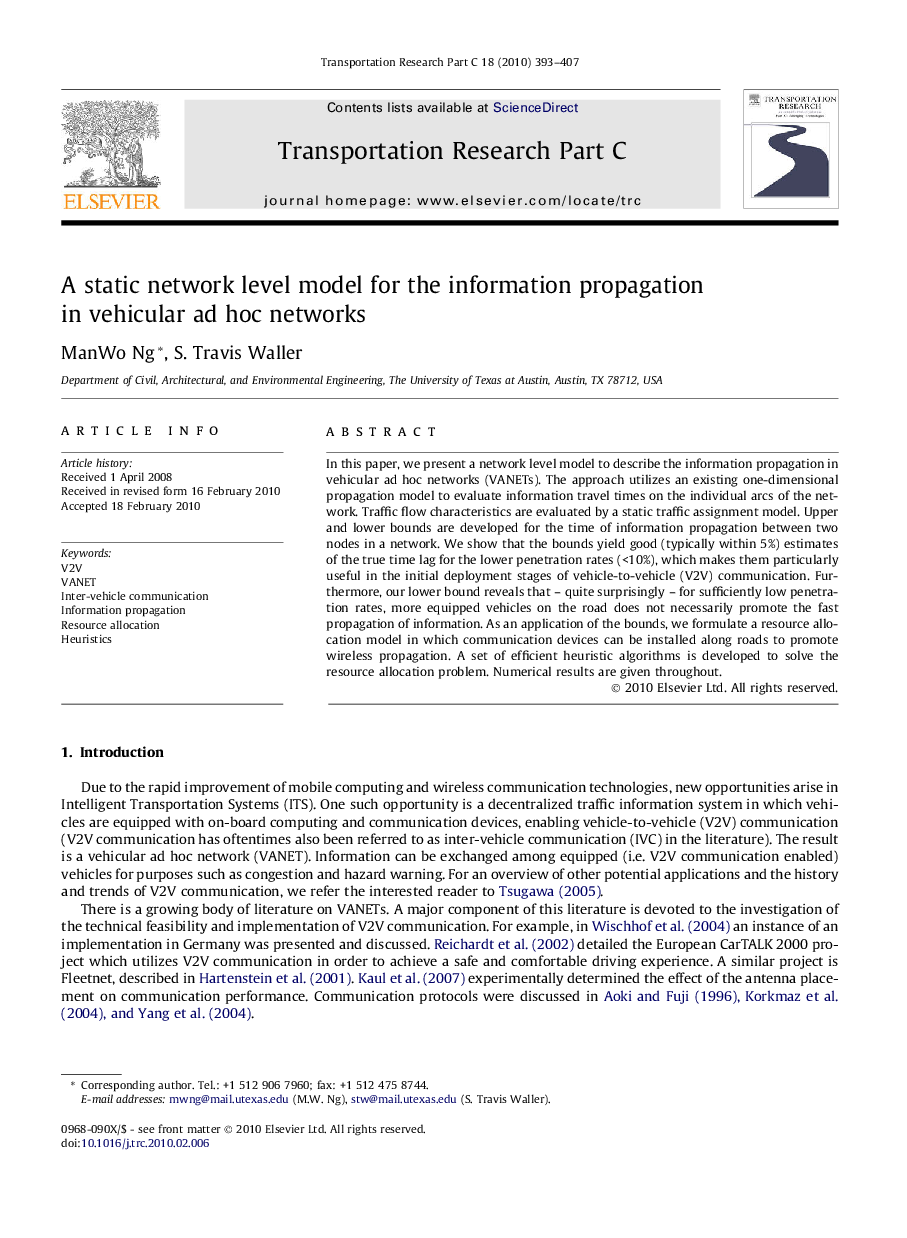| کد مقاله | کد نشریه | سال انتشار | مقاله انگلیسی | نسخه تمام متن |
|---|---|---|---|---|
| 525444 | 868919 | 2010 | 15 صفحه PDF | دانلود رایگان |

In this paper, we present a network level model to describe the information propagation in vehicular ad hoc networks (VANETs). The approach utilizes an existing one-dimensional propagation model to evaluate information travel times on the individual arcs of the network. Traffic flow characteristics are evaluated by a static traffic assignment model. Upper and lower bounds are developed for the time of information propagation between two nodes in a network. We show that the bounds yield good (typically within 5%) estimates of the true time lag for the lower penetration rates (<10%), which makes them particularly useful in the initial deployment stages of vehicle-to-vehicle (V2V) communication. Furthermore, our lower bound reveals that – quite surprisingly – for sufficiently low penetration rates, more equipped vehicles on the road does not necessarily promote the fast propagation of information. As an application of the bounds, we formulate a resource allocation model in which communication devices can be installed along roads to promote wireless propagation. A set of efficient heuristic algorithms is developed to solve the resource allocation problem. Numerical results are given throughout.
Journal: Transportation Research Part C: Emerging Technologies - Volume 18, Issue 3, June 2010, Pages 393–407